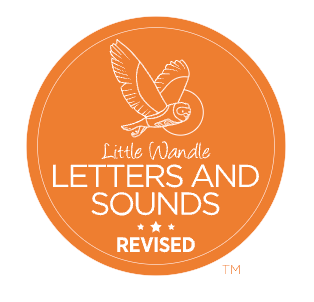British Values
At Grange C of E Primary School, we are committed to nurturing children who are thoughtful, respectful, and active members of society. Our school values—love, hope, and trust—are at the heart of everything we do and closely align with the Fundamental British Values promoted by the Department for Education:
- Democracy – encouraging pupil voice and shared decision-making
- Rule of Law – helping children understand the importance of rules and fairness
- Individual Liberty – supporting children to make choices and express themselves safely
- Mutual Respect and Tolerance – celebrating diversity and learning about different cultures and beliefs
These values are woven into our curriculum, class and collective worship and everyday school life. We aim to help children understand their role in both the local and global community, and to develop the confidence and compassion to make a positive difference in the world.
How We Embed British Values in School Life
At Grange C of E School, we actively promote British Values in the following ways:
Democracy
We believe it’s important for children to feel heard and involved in their school. At Grange, pupils are encouraged to share their ideas, take part in discussions, and help shape school life.
- Children have a voice through our School Council, where they discuss topics that matter to them and help make decisions.
- We explore the idea of democracy in lessons, assemblies, and special themed days.
- Each class agrees on a Class Charter, based on the UN Rights of the Child, which supports our behaviour policy and helps children understand fairness and responsibility.
- Pupils take part in voting for house captains, school council members, and sometimes even help with staff appointments—giving them real-life experience of democratic processes.
Rule of Law
We help children understand why rules matter—at school and in the wider world.
- Our behaviour policy is clear and fair, with rewards and consequences that support positive choices.
- We teach the ‘Golden Rule’ (treat others as you’d like to be treated) and what it means to be a ‘good neighbour’.
- Each class creates a Class Charter based on the UN Convention on the Rights of the Child, agreed together at the start of the year.
- Children are supported to understand right from wrong in lessons, during play, and in collective worship.
- We help pupils learn how laws protect us and keep everyone safe.
Individual Liberty
Children are encouraged to make choices and express themselves in a safe, supportive environment.
- We help pupils understand their responsibility to care for the world around them, as part of God’s creation.
- We build self-confidence and self-esteem through positive relationships and learning experiences.
- Pupils learn to take responsibility for their behaviour and understand the impact of their choices.
- We teach children about their rights and freedoms through PSHE, e-safety, KIDSAFE, and the UN Rights of the Child.
- We promote inclusion and challenge stereotypes, with a strong anti-bullying culture across the school.
- Pupils take on leadership roles such as Council Members, Play Leaders, and Classroom Monitors.
Mutual Respect and Tolerance
At our school, we place great importance on teaching children to respect and value everyone, regardless of their background, beliefs, or differences. We help pupils understand that:
- Respect is expected for everyone—both adults and children.
- We are all equally valued—children learn that we are all made in the image and likeness of God, and that everyone is special.
- Understanding and respecting different cultures and lifestyles is part of everyday learning.
- Discrimination and prejudice are challenged—staff and pupils are encouraged to speak up against unfair or hurtful behaviour.
- We build connections with local faith communities—through visits and shared experiences at places of worship.
- Our PSHE and RE lessons help children explore and appreciate differences and similarities among people, including faith, ethnicity, disability, gender, and family situations.
- Our curriculum includes learning about different religions—we encourage respect and understanding through a broad and inclusive approach, with global themes woven into many topics.









